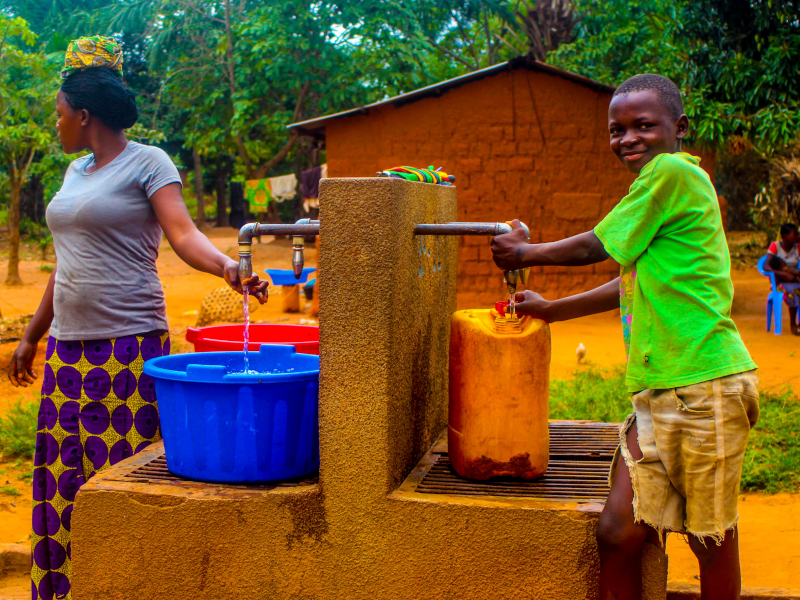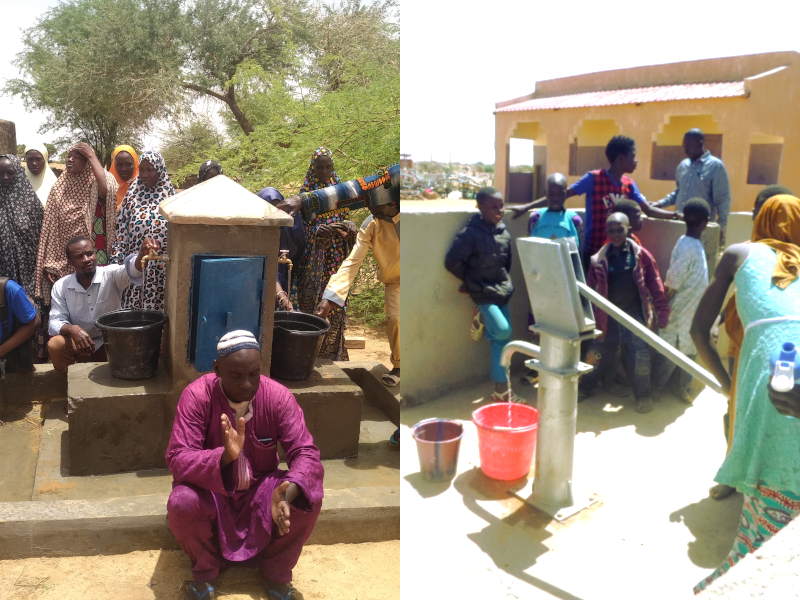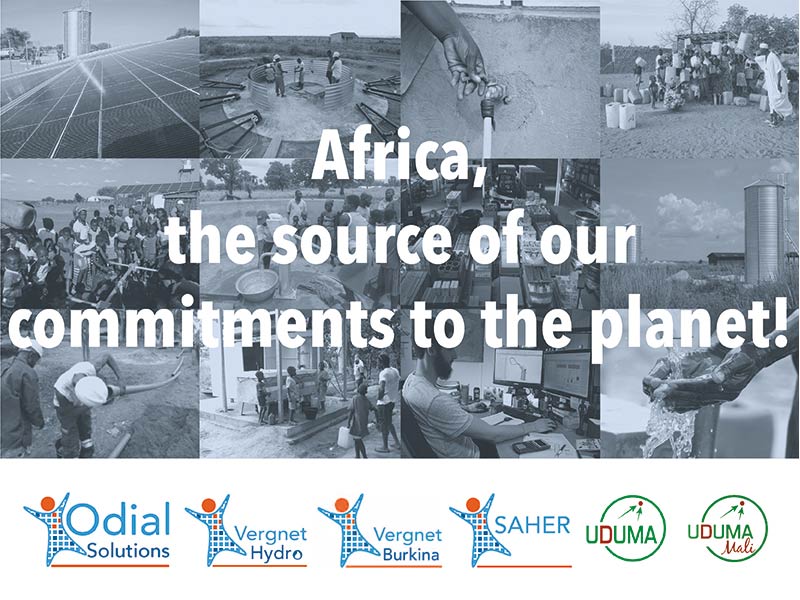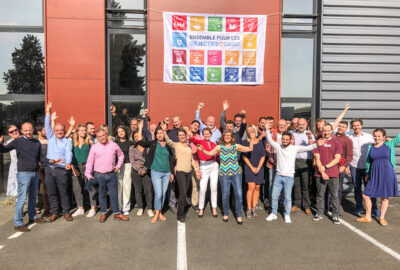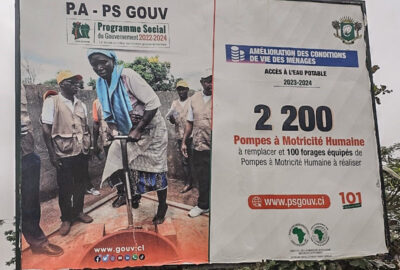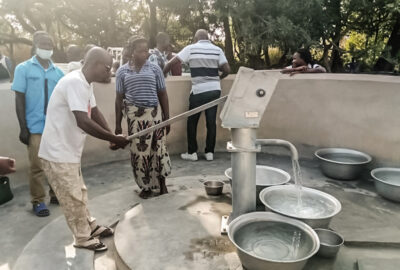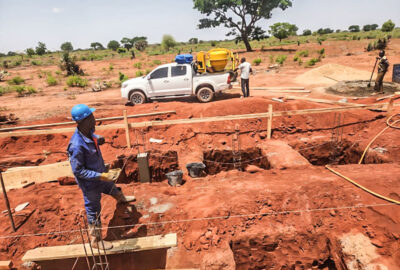Democratic Republic of the Congo, DRC, Drinking water, Energy, environnement, Gestion, Management, Réservoirs, Services de l’eau, Solar, Water Supply Service, Water supply systems
DRC: solar hybrid system will bring more than 80,000 people a continuous supply of drinking water
Picture caption: Inhabitants of Mbuji Mayi drawing drinking water from a standpipe supplied by one of the two hybrid water networks within the framework of this project (photo credit: Enabel).
Converting fossil-fuel-powered generators to solar hybrid power systems: a high-potential market for the hydraulics sector in Africa
VERGNET HYDRO will convert to hybrid power two drinking water networks in Mbuji-Mayi city (Kasai-Oriental Province, DRC) by coupling the current Diesel generators to solar power plants to bring a continuous supply of water to more than 80,000 people. “Converting fossil-fuel-powered generators to solar hybrid power systems is without any doubt a high-potential market for the hydraulics sector in Africa. It is important that we start demonstrating the expertise VERGNET HYDRO has in this field now,” said Romain Dubreuil, Area Sales Manager for VERGNET HYDRO, enthusiastically. The hybrid systems are scheduled to be commissioned in December 2020.
The electricity network in Mbuji-Mayi is defective, inadequate and undeveloped in peri-urban areas. Consequently, drinking water networks are powered by Diesel generators. In this isolated province, however, fuel is expensive. This has a significant impact on the price of the water sold at water distribution points, which are in fact little used because they are financially beyond the reach of many local people. To provide wider access to drinking water, the Belgian development agency Enabel, financed by the Kingdom of Belgium, has opted to put in place a technology that is less damaging to the environment and offers lower, more controllable running costs: solar PV farms. “This pilot project is part of Enabel’s PROGEAU programme in DRC and is set to be rolled out to nine other drinking water networks in Mbuji-Mayi, to serve 350,000 people, and four networks in Maniema Province, to serve 100,000 people,” explained Fabian PROD’HOMME, the programme’s coordinator at Enabel.
Direct solar solutions without batteries
Under the project, direct solar solutions without batteries will be used to power the two water networks. To ensure continuity of supply 365 days per year, Diesel generators will take over from the solar generators where necessary, on very cloudy days and overnight. VERGNET HYDRO’s role in the project is to supply and install two solar farms, all the equipment required to connect the solar generators to the pumps, float valve systems for the tanks and pressure switch automatic regulation systems for the pumps. “The solar farms should produce at least 160m3 and 130m3 of water per day, with peak power of 37kWp and 32kWp,” explained Roman SNRECH from VERGNET HYDRO, who is in charge of the operational side of the project.
Training the network operators is another important aspect of the project. Indeed, it is essential to ensure that the network operators grouped together within the ASUREPs (drinking water network users’ associations) rapidly become self-sufficient in day-to-day management and equipment maintenance. “We will run four sessions with the technicians from each network and the inter-network technicians. We will equip them with tool kits (multimeters, assembly/disassembly tools, solarmeters, etc.) and provide a maintenance support service during the first few months,” said Roman SNRECH.


